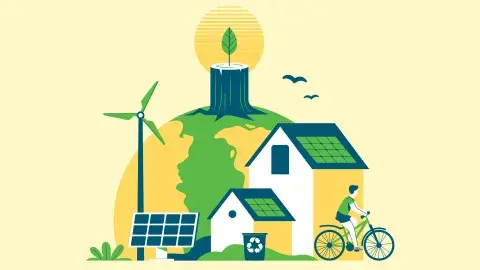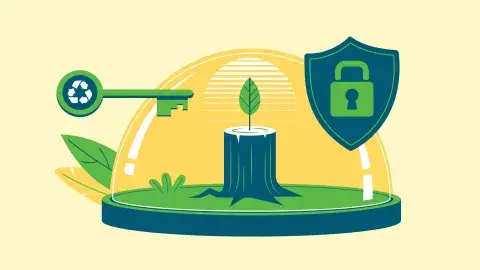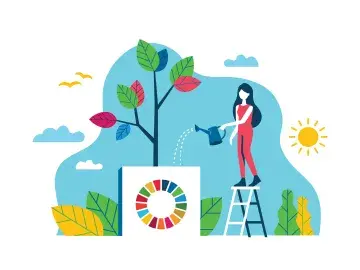Faith For Earth: A Time for Action
It is increasingly recognised that faith leaders and faith-based organizations (FBOs) are essential contributors towards attaining the Sustainable Development Goals (SDGs) and addressing environmental and climatic crises. Acknowledging this, the United Nations Environment Programme (UNEP) launched the Faith for Earth Initiative to strategically engage with FBOs, mobilise greater faith-inspired environmental action, scale-up faith actors’ capacities and catalyse greater synergies between them and other stakeholders.
This e-learning course will examine the ways in which the Faith for Earth Initiative engages with faith actors and how this work is embedded into UNEP’s overall strategy. It will emphasise the importance of faith and secular actors working together by drawing on the particular qualities of scientifically-guided and faith-inspired action.
Throughout, participants will explore the added value of engaging with faith actors for mutually prioritised environmental action and study examples of work already being undertaken by faith actors in this field. The intrinsic linkages between all religions and nature are highlighted, demonstrating that environmental care is a common ethical behaviour advocated in the teachings and scriptures of all the world’s faith traditions.
This course is self-paced. All course components are readily available and can be completed at a time that is convenient for the participant (within a one-month period).
Please note that this course is not facilitated by a Course Team. Any specific questions can be emailed to the KAICIID E-Learning Programme at: GEORGIA.GLEOUDI@KAICIID.ORG or elearning@KAICIID.ORG
KAICIID launched the FAITH4SDGS Project. More information and material can be found here: https://www.kaiciid.org/content/sustainable-development-goals-sdgs
This course is specifically designed for religious leaders, FBOs, civil society, non-governmental organizations, UN agencies and other multilateral institutions, government officials, policy and decision-makers and individuals interested in this field.
• To recognise the importance of engaging with faith actors in SDG implementation and environmental action processes.
• Different theological perspectives on the environment and how they can influence the ways different faith actors operate.
• The many ways FBOs can become involved with the work of UNEP.
• Some essential knowledge and resources to better equip you to address the SDGs and engage in environmental action with diverse stakeholders.
This interactive digital course is specifically designed for busy professionals who do not have time to take the longer, moderated seven-module course on ‘Engaging Faith Actors to Support Implementation of the SDGs’. They can now select the relevant thematic topics and modules and learn on the go. Administered through a Massive Open Online Course (MOOC) platform, this short course takes around two hours to complete and can be taken anywhere, anytime, at a pace that suits and from a phone or a computer.
Participants who successfully complete the course will receive a Certificate of Completion.
The practice of using interreligious dialogue (IRD) for engaging faith actors to support and promote the UN SDGs is rapidly emerging as a necessary tool for the twenty-first century education toolbox. KAICIID e-learning courses build the capacities of global leaders to address a number of today’s most pressing challenges by developing knowledge, networks and skills. The courses are part of an ongoing collaboration between KAICIID,UNEP, UPEACE, LWC, NMCL and ISCREB.
The United Nations Environment Programme (UNEP) is the leading global environmental authority that sets the global environmental agenda, promotes the coherent implementation of the environmental dimension of sustainable development within the United Nations system and serves as an authoritative advocate for the global environment. Faith for Earth is a special initiative of UNEP with three main goals: 1) Partnerships with faith leaders, faith-based organizations and faith actors on environmental policies; 2) Transformation of faith assets and investments into green ones; and 3) Bridging the common understanding between science and religious teachings based on evidence. For UNEP, the integrated approach to achieving the SDGs should facilitate the integration of religious and cultural values to ensure inclusive green and transformative development through adopting lifestyles that are informed by faith-based values and behaviors to achieve sustainable consumption and production.
Modern and updated browsers.
E-Learning in IRD designed for the general public


